Creatine Monohydrate 200g; 500g; 1kg (Pharmaceutical Grade)
R195.00 – R495.00Price range: R195.00 through R495.00
Creatine Monohydrate (100% Pharmaceutical Grade)
Description
Creatine Monohydrate: For explosive power.
One rounded scoop of paceandpower.co.za Creatine Monohydrate provides 6.6g (6600mg) of 100% pharmaceutical grade Creatine Monohydrate
Our paceandpower.co.za Creatine Monohydrate has NOTHING added! It is FREE OF sugars, artificial flavours, Gluten, Wheat, Dairy, Soy, Yeast, Sodium, Sweeteners, Preservatives and Colourants
FAQ: Creatine Monohydrate
What is Creatine?
Creatine is an organic substance synthesised in the human body by the liver from 3 amino acids called methionine, arginine, and glycine. The body naturally makes around 1 gram per day.
It’s also found in food such as beef, salmon, seafood and pork, which is how most carnivores get their creatine on a daily basis. 95% of creatine is stored in skeletal muscle.
Our paceandpower.co.za Creatine Monohydrate is pharmaceutical grade. NOTHING added! It is FREE OF sugars, artificial flavours, Gluten, Wheat, Dairy, Soy, Yeast, Sodium, Sweeteners, Preservatives and Colourants
What does creatine do in the body?
Creatine is part of your energy cycle: When you eat creatine in meat/fish or take a creatine supplement, your body converts the amino acids into a molecule called phosphocreatine, which helps create energy in adenosine triphosphate (ATP). Without ATP, your muscles wouldn’t be able to move. Higher levels of phosphocreatine means faster, more explosive energy. This is particularly important in sports that require repeated “sprints” or episodes of high-intensity effort lasting between 2 to 30 seconds, separated by short recovery intervals (such as soccer/ hockey/ squash/ rugby/ boxing/ track and also road cycling or MTB – where you might need to powerfully “break-away”)
Why Creatine Monohydrate?
Creatine Monohydrate is the easiest form to be absorbed through the gut.
Our paceandpower.co.za Creatine Monohydrate is pharmaceutical grade. NOTHING added! It is FREE OF sugars, artificial flavours, Gluten, Wheat, Dairy, Soy, Yeast, Sodium, Sweeteners, Preservatives and Colourants
Do I need to “load” Creatine?
No, you don’t need to load with creatine at all. You can simply follow a low maintenance dose of 5 grams (or less) per day. Studies have shown the strength and power gains, are the same after 28 days, whether you load or not. The only benefit you’d get in loading would be that you’d reach saturation levels slightly quicker, but it’s not necessary.
Then what is the purpose of loading with creatine?
The purpose of loading with creatine is to fully saturate and volumise the muscles and to do so as quickly as possible. For example, if you had strength or power event coming up, where you don’t need to cut weight.
If I choose to load creatine, how would I do this?
Simply take a much higher dose ~20 grams per day for one week. Itt’s best to split this dose into 4 servings spread over the day.
So a simple loading protocol will be as follows:
- 8am – Breakfast with 5g of Creatine Monohydrate
- 12pm – Lunch with 5g of Creatine Monohydrate
- 3pm – Afternoon snack with 5g of Creatine Monohydrate
- 6pm – Dinner with 5g of Creatine Monohydrate
After 7 days of “loading up”, your muscles’ creatine stores will be full, and then you can switch to the lower maintenance dose of 5g per day.
What is the maintenance dose?
5 grams (or less). After 28 days, your creatine levels will be the same level as if you had followed the loading protocol. If you’re relatively small, or lightweight, or an endurance athlete or a sprint swimmer, you would benefit from using 1-2 grams only.
How Do I Take Creatine?
Because creatine is tasteless and dissolves easily, simply add one scoop into your EnduraPower, or to water, or to a fruit juice (eg grape juice). There is some research which shows increased uptake into the muscles if creatine is taken with carbohydrate, but it will still be well-absorbed, even if you take it with water only.
When is the best time to take Creatine?
You have three options: Before your workout, after your workout or “whenever.”
What age can a person start taking creatine?
Parents this is your call. We stand by 21 years of age, in other words, an adult.
I don't want to gain weight...
How to NOT gain weight from creatine
One of the reasons why many endurance athletes steer away from using creatine, is the weight (muscle) gain caused by the volumisation/retention of water within the muscles. In others words, the increased performance might be hindered by the increased body mass. But this does not have to be the case! Small doses (1-3 grams) of creatine will help avoid volumisation/weight gain. (Obviously no loading phase to be done). In addition, if creatine is taken with just water (and not with a high GI carbohydrate), there tends to be less cell volumisation.
Points of interest, warnings and precautions:
Points of interest, plus warnings and precautions:
- Creatine is great for preventing muscle loss through aging! Fifty plus…include weight-training in your fitness routine!
- Creatine has been shown to be beneficial for those individuals who consume little or no meat/fish in their diet such as vegetarians. And although dietary creatine is from animals, the one found in supplements is made from compounds that are vegan-friendly. (That said if you’re vegan and planning to take a creatine supplement delivered in capsule form, ensure that these aren’t made from gelatin, which is a non-vegan ingredient).
- Six months is usually the maximum duration to use creatine before taking a break. We usually recommend using it for up to 3 months, then taking a break for 1-3 months.
- Creatine intake coupled with weight training can increase muscle mass, but this may not be your desired outcome! For instance, if you’re a long-distance runner and need a super-light frame to perform at your best. Similarly, sprint swimmers may find that the volumisation affects their performance: We usually suggest that sprint swimmers take a very low dose (1-2 grams, in water only) so that there is little/no volumisation. (And obviously they should not load).
- Don’t take creatine during pregnancy and breastfeeding.
- There is some evidence that consuming caffeine and vitamin C decreases the effectiveness of creatine.
- Alcohol pretty much wipes out all your gains and the benefits of using creatine: Alcohol pulls water from tissues and acts as a diuretic, causing dehydration, headaches and muscle cramping.
- Taking creatine with anti-inflammatory medications, NSAIDS, which are a class of pain relievers that also reduce fever and inflammation – such as ibuprofen, may increase the risk of kidney damage.
- Don’t take creatine if you’re on meds for the treatment of gout or ulcers.
- Excess creatine is eliminated via the kidneys, so don’t take creatine if you have kidney damage.
Endurance Athletes...
Is there any benefit for Endurance Athletes to use creatine?
Although creatine has traditionally been thought of a supplement for only strength and power sports – such rugby, powerlifting, kettlebell sport and CrossFit®, creatine may be beneficial for distance athletes too, for two reasons: Firstly, endurance athletes do need to do some strength training and secondly, creatine boosts performance in any explosive performance – such as a “break-away” in cycling or running – any interval-type requirement in competition.
Endurance Athletes: How to NOT gain weight from creatine
One of the reasons why many endurance athletes steer away from using creatine, is the weight (muscle) gain caused by the volumisation/retention of water within the muscles. In others words, the increased performance might be hindered by the increased body mass. But this does not have to be the case! Small doses (1-3 grams) of creatine will help avoid volumisation/weight gain. (Obviously no loading phase to be done). In addition, if creatine is taken with just water (and not with a high GI carbohydrate), there tends to be less cell volumisation.
A Special Note to Endurance Athletes: Stay hydrated and avoid competing in extreme heat.
Most of the creatine goes to your muscles. From there, creatine pulls water from other areas of your body and deposits it into the muscle. You can therefore become dehydrated quickly if you exercise intensely in the heat, so make sure that you stay well-hydrated and avoid (if possible) competing/ training in extremely hot conditions: Keep to an air-conditioned studio, or train early in the morning. This is particularly important if you’re taking large daily doses of creatine (=>5 grams/day).
Only logged in customers who have purchased this product may leave a review.

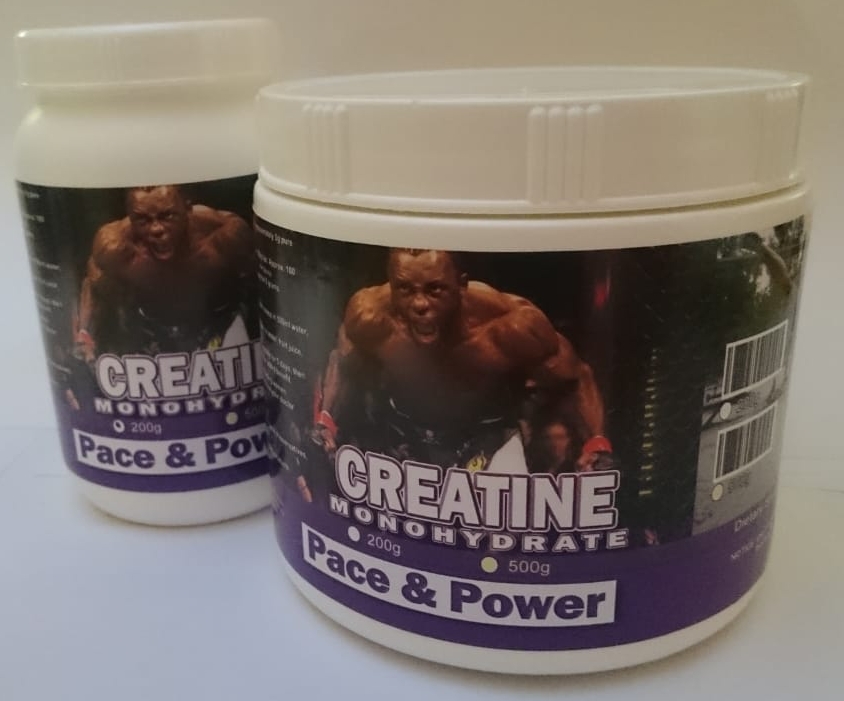
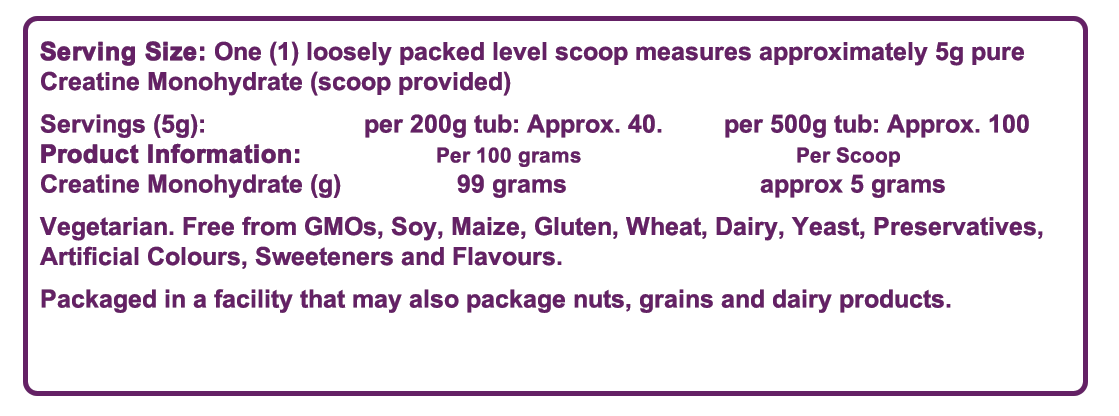
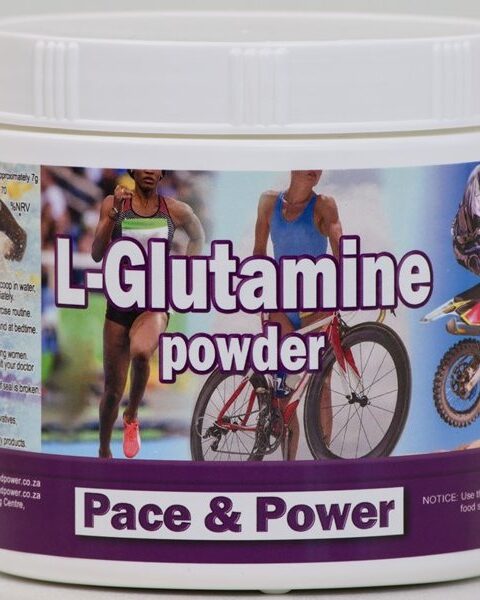
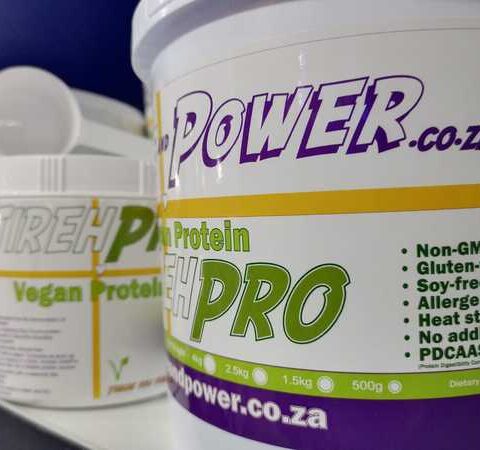
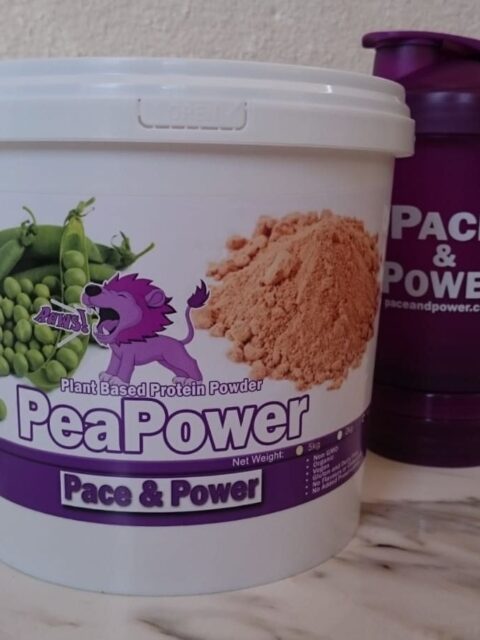
Reviews
There are no reviews yet.